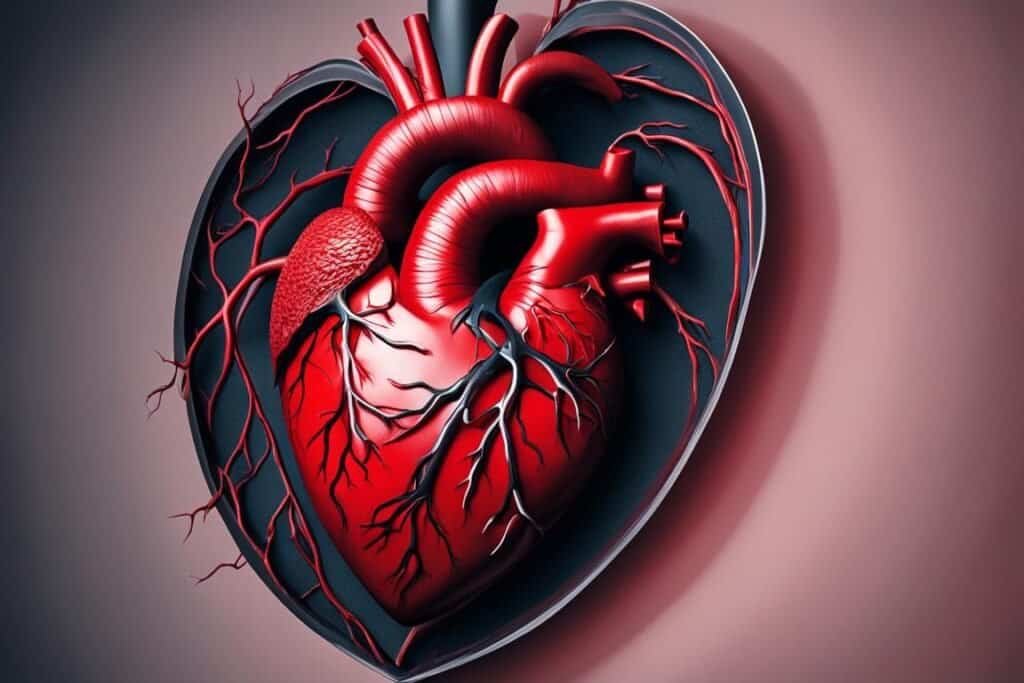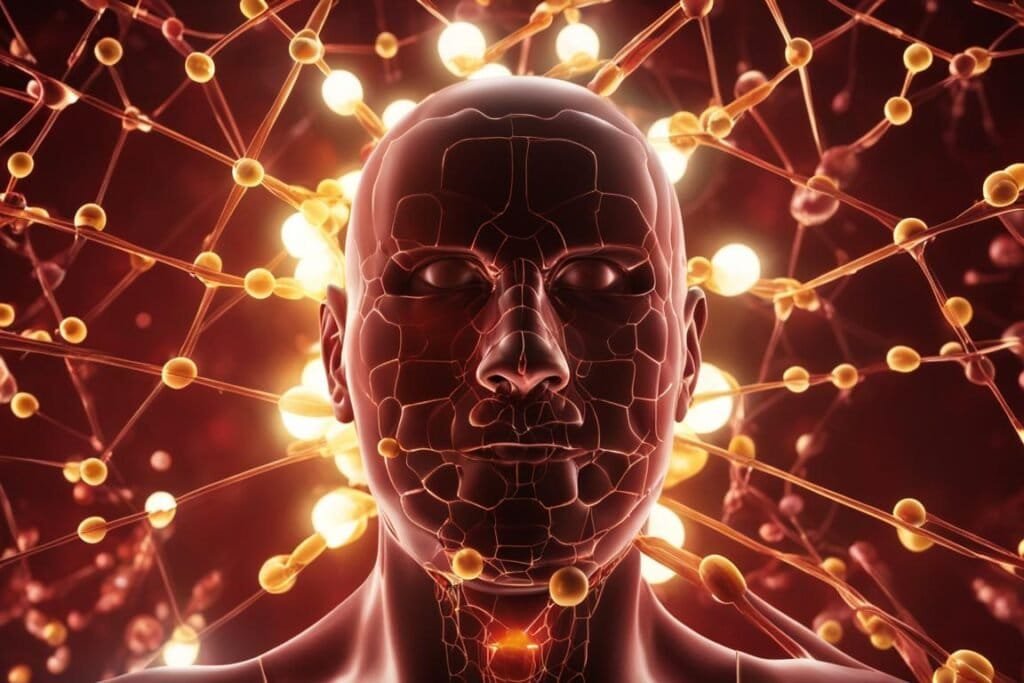Welcome to our informative guide on managing your cholesterol and cortisol levels for a healthier you. Balancing these two vital aspects of your health is essential for promoting overall well-being and reducing the risk of heart disease. In this article, we will provide you with valuable insights, diet tips, stress relief techniques, and lifestyle choices to help you effectively manage your cholesterol and cortisol levels.
Chronic stress and anxiety can have adverse effects on your physical and mental health. Elevated cortisol levels, often associated with stress, can contribute to various health issues. Additionally, high cholesterol levels can pose a significant risk factor for heart disease. By understanding the correlation between these two factors and adopting practical strategies, you can improve your health and well-being.
Managing cholesterol and cortisol starts with making conscious dietary choices. Incorporating a whole-food, plant-based diet rich in fruits, vegetables, whole grains, and lean proteins can help regulate cholesterol levels. We will also explore the role of supplements, such as magnesium, B12, folic acid, and Vitamin C, in cortisol regulation.
To effectively reduce cortisol levels, we will introduce stress relief techniques like deep breathing exercises, journaling, and indulging in hobbies. We will also discuss the importance of reducing caffeine intake, getting adequate sleep, regular exercise, and spending time outdoors.
Key Takeaways:
- Managing both cholesterol and cortisol levels promotes overall well-being and reduces the risk of heart disease.
- A whole-food, plant-based diet and supplements like magnesium play a crucial role in balancing cholesterol and cortisol levels.
- Stress relief techniques, including deep breathing exercises and journaling, help lower cortisol levels.
- Reducing caffeine intake, getting adequate sleep, regular exercise, and spending time outdoors are beneficial for managing cortisol levels.
- By incorporating these lifestyle choices, you can achieve a healthy balance of cholesterol and cortisol, leading to improved heart health and overall well-being.
The Link Between High Cholesterol and Heart Disease
Elevated cholesterol levels can significantly increase the risk of heart disease, which is the leading cause of death in the United States. High levels of LDL cholesterol (often referred to as “bad cholesterol”) can lead to inflammation and the narrowing of arteries, a condition known as atherosclerosis. This narrowing restricts blood flow, increasing the likelihood of heart problems.
Conversely, HDL cholesterol (known as “good cholesterol”) plays a protective role by removing LDL cholesterol from the bloodstream and transporting it to the liver for processing and elimination. It helps lower LDL cholesterol levels, reducing the risk of heart disease.
Additionally, triglycerides, another type of fat found in the blood, can contribute to heart disease when excessively elevated. High triglyceride levels are often associated with increased LDL cholesterol and decreased HDL cholesterol levels.
Understanding the intricate relationship between cholesterol, heart disease, and lipid metabolism is crucial for managing cholesterol levels and promoting heart health. By maintaining optimal levels of LDL cholesterol, HDL cholesterol, and triglycerides, individuals can reduce their risk of heart disease and improve their overall well-being.

| Types of Cholesterol | Function |
|---|---|
| LDL Cholesterol | Transports cholesterol from the liver to the cells; high levels increase the risk of atherosclerosis |
| HDL Cholesterol | Transports cholesterol from the cells to the liver for elimination; helps lower LDL cholesterol levels |
| Triglycerides | A type of fat that provides energy; excessively high levels can contribute to heart disease |
The Functions and Importance of Cholesterol
While high cholesterol levels can be problematic, cholesterol plays a crucial role in maintaining cellular homeostasis and supporting various functions in the body. Understanding the functions and importance of cholesterol is vital for promoting overall health and well-being.
One of the main functions of cholesterol is serving as a structural component of cell membranes. It provides stability and fluidity to the cell membranes, allowing them to function properly and maintain their integrity.
Furthermore, cholesterol is involved in the synthesis of steroid hormones. These hormones, including cortisol, estrogen, testosterone, and aldosterone, play essential roles in regulating bodily processes such as metabolism, reproduction, and stress response.
Cholesterol also contributes to the synthesis of vitamin D, a critical nutrient that supports bone health, immune function, and calcium absorption. Adequate cholesterol levels are necessary for the efficient production of vitamin D in the body.
In addition to hormone synthesis and vitamin D production, cholesterol is involved in the production of bile acids. Bile acids are essential for the digestion and absorption of dietary fats and fat-soluble vitamins.
Overall, maintaining balanced cholesterol levels is crucial for optimal cellular function and overall health. However, it is important to note that excessive cholesterol levels can have adverse effects on cardiovascular health. Therefore, it is important to adopt a healthy lifestyle, including a balanced diet and regular exercise, to keep cholesterol levels within a healthy range.

The Basics of Cholesterol Synthesis and Regulation
Cholesterol synthesis is a complex process that primarily occurs in the liver, with smaller contributions from the intestines. It involves a series of enzymatic reactions and is tightly regulated to maintain optimal cholesterol levels in the body.
One key enzyme involved in cholesterol synthesis is HMG-CoA reductase. This enzyme plays a crucial role in converting HMG-CoA (3-hydroxy-3-methylglutaryl-CoA) into mevalonate, a precursor in cholesterol biosynthesis. The activity of HMG-CoA reductase is regulated through various mechanisms.
Covalent modification is one mechanism that regulates the activity of HMG-CoA reductase. This modification can either activate or inhibit the enzyme, depending on the phosphorylation state. Additionally, allosteric feedback inhibition occurs when cholesterol levels in the cell increase, leading to the inhibition of HMG-CoA reductase activity.
Hormonal control also plays a role in regulating cholesterol synthesis. Insulin promotes the activity of HMG-CoA reductase, while glucagon inhibits it. This hormonal control helps maintain a delicate balance of cholesterol synthesis in response to the body’s energy needs.
Furthermore, transcriptional control of gene expression is crucial for regulating cholesterol synthesis. Sterol regulatory binding proteins (SREBPs) act as transcriptional activators, binding to specific regions of DNA and promoting the expression of genes involved in cholesterol biosynthesis.
Understanding the intricacies of cholesterol synthesis and regulation is essential for maintaining optimal cholesterol levels in the body. By targeting key enzymes like HMG-CoA reductase and utilizing transcriptional control mechanisms, it is possible to modulate cholesterol synthesis and achieve a healthy balance.
Cholesterol Synthesis Regulation Mechanisms
| Regulation Mechanism | Description |
|---|---|
| Covalent Modification | Phosphorylation state of HMG-CoA reductase controls its activity. |
| Allosteric Feedback Inhibition | Inhibition of HMG-CoA reductase when cellular cholesterol levels increase. |
| Hormonal Control | Insulin promotes HMG-CoA reductase activity, while glucagon inhibits it. |
| Transcriptional Control | SREBPs activate genes involved in cholesterol biosynthesis. |
Understanding the regulation of cholesterol synthesis is crucial for maintaining optimal cholesterol levels.
Conclusion
Managing your cholesterol and cortisol levels is crucial for promoting overall health and reducing the risk of heart disease. By adopting a whole-food, plant-based diet and incorporating supplements like magnesium, you can effectively manage your cholesterol levels and support heart health. Additionally, practicing stress-relief techniques such as deep breathing exercises and journaling can help reduce cortisol levels and improve your overall well-being.
It’s important to prioritize regular exercise, adequate sleep, and engaging in hobbies to further support your cholesterol management and cortisol reduction efforts. Exercise not only helps to lower cholesterol levels but also reduces cortisol production, making it an excellent choice for maintaining heart health. Adequate sleep allows your body to recover and regulates cortisol levels, helping to keep them in check. Engaging in hobbies and spending time outdoors can also have a positive impact on your overall well-being and stress levels, contributing to improved cholesterol balance and cortisol reduction.
By making these lifestyle choices, you can achieve a healthy balance of cholesterol and cortisol, leading to improved heart health and overall well-being. Remember to consult with a healthcare professional before making any significant changes to your diet or exercise routine, especially if you have underlying health conditions. Taking proactive steps towards cholesterol management and cortisol reduction can pave the way for a healthier and happier life.

